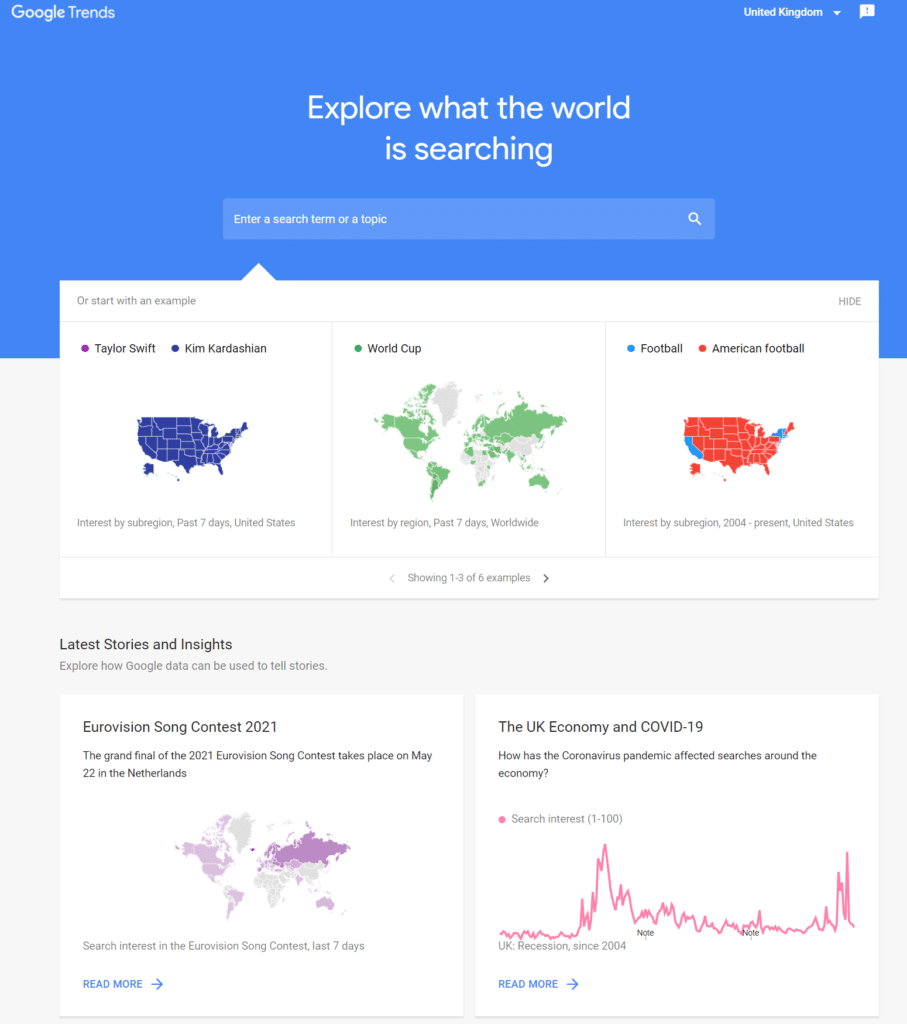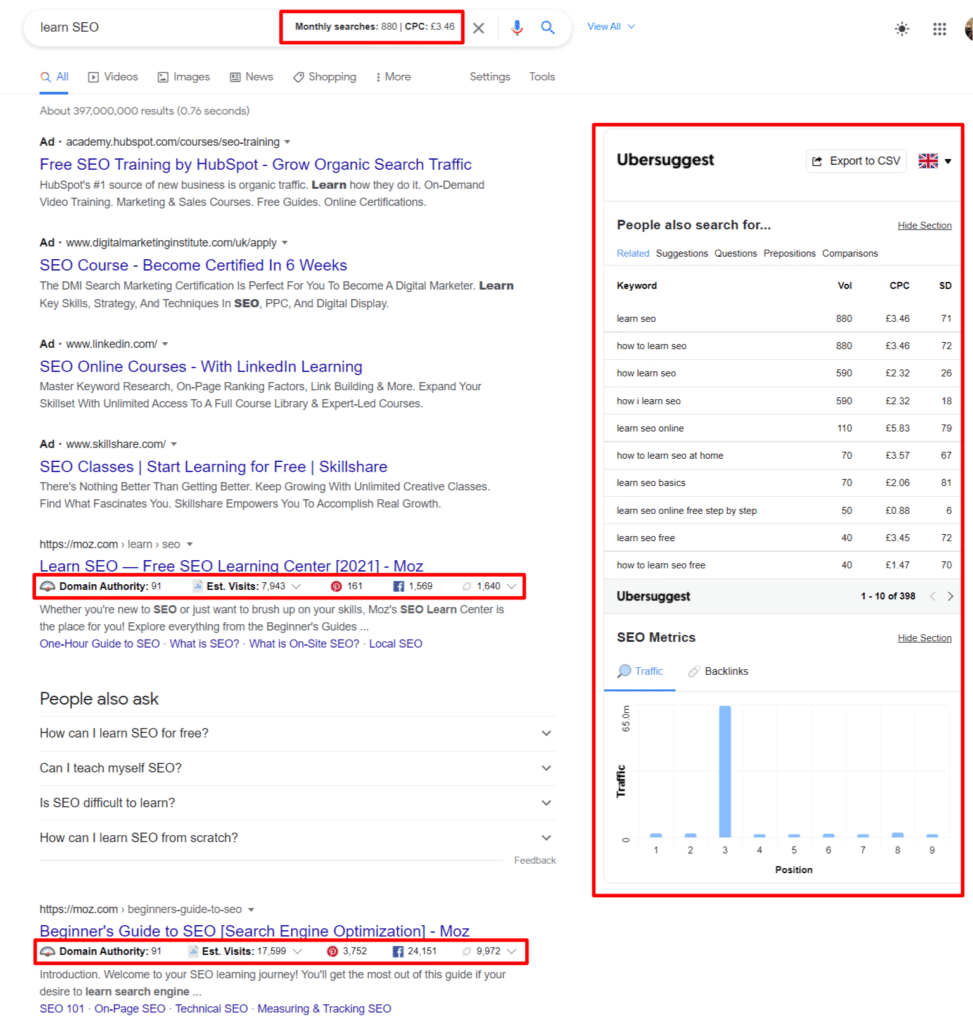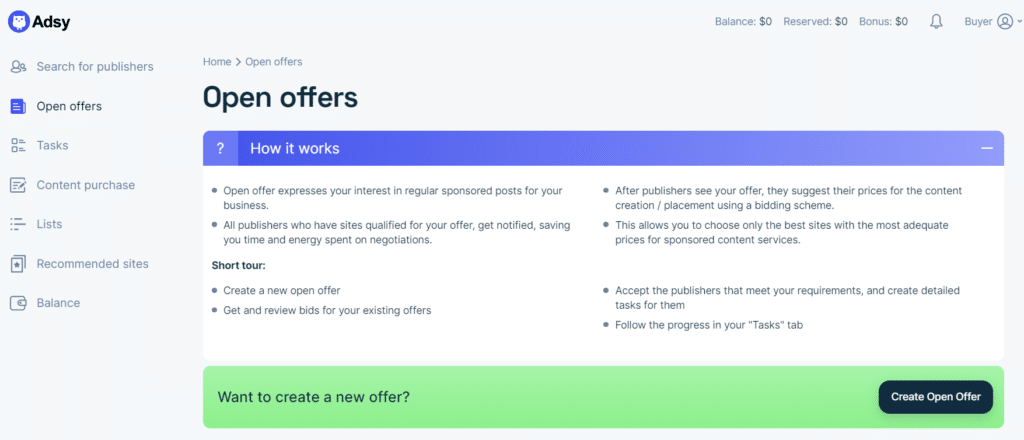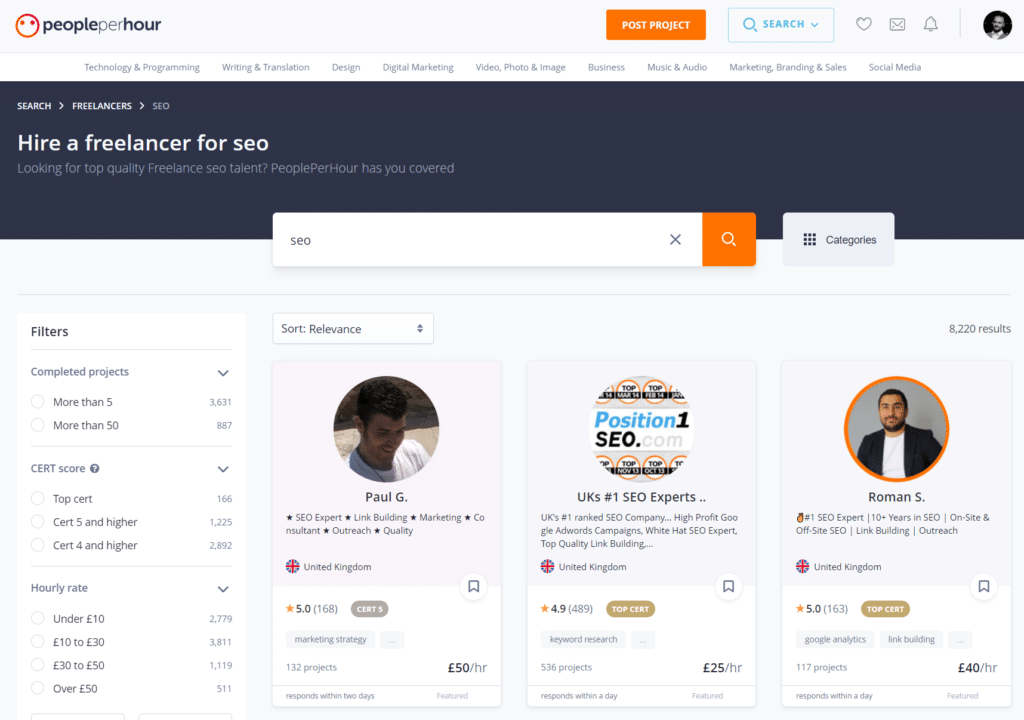How To Target London With Your Local SEO Efforts

Local SEO services can no longer be ignored by businesses. If your company is to have a dominant online presence and maximise sales, search engine optimisation is an approach you need to perfect. SEO is an array of strategies used to improve the visibility of a website in a search engine’s unpaid results. You will often hear these referred to as ‘organic’ or ‘natural’ results.
Research shows that between 80 and 90 per cent of customers check online reviews prior to making a purchase, and this number is only expected to grow over time. If you do not have organic London SEO in place, you will lose out on potential customers to the competition. In fact, position one in Google gets 33 per cent of the search traffic, and position two gets 18 per cent. Position ten receives around two per cent, and there is a significant drop in traffic from page one to page two.
The Benefits Of Using Experts For London SEO Services
A solid SEO strategy can increase traffic, improve conversions, and enhance profits, but this will only be the case if you choose a London SEO company with care. Some companies may boost your traffic levels, but if your bounce rate is high and none of these leads are turning into consumers, what’s the point? This won’t happen when you choose an SEO company with care. All you need to do is look at the results they have achieved so far, and the speed by which they have achieved them, and this will put your mind at ease.
One of the most notable aspects of a top service is that they will only use white hat techniques, ensuring completely organic results. No customer should have ever been negatively impacted by any Google update. If you use the services of a company that deploys black hat SEO, i.e. does not obey with search engine guidelines, it’s only a matter of time before your business site’s rank plummets or is even banned.
Notable Places In And Around London
Local London SEO is vital for businesses that are targeting this area. It ensures you zoom in on your target consumer base, as it enhances your rankings and gives you less competition based on local search. This is particularly beneficial for smaller businesses. It is also vital considering the shift to using smartphones and other mobile devices to browse the web. Nevertheless, London is, of course, a massive city, and thus it pays to narrow down your local SEO even further, as there are many notable places in and around England’s capital city.
For example, Canary Wharf plays host to some of the biggest banks, including Credit Suisse and HSBC. A lot of large corporations are housed in this area of London, which is considered a huge financial centre. The West End is home to a number of fund managers and private equity groups, which are based in Mayfair, with a large number of media agencies scattered around Covent Garden and Oxford Street.
Understanding SEO Basics
Whether you hire an agency, freelancer or do SEO in-house, it is important to understand the fundamentals of SEO as well as the most common terminology and how they impact your search rankings.
Keywords and phrases
These are the search terms users input into search engines such as Google. For example, “Dentist in London”. In order to rank for these keywords your site need to contain both the exact phrase/keyword as well as related terms. This is particularly important because as search algorithms get more sophisticated they look at and understand the information on your site in the same way a human would. This means keywords must appear natural and make sense, simply stuffing keywords on a page is no longer good enough and your ranking will suffer as a result.
Keyword Research
Looking at what search terms people use when looking for services like yours will give you a good idea of what keywords you should be targeting. This can be further expanded upon be looking at search terms within a geographical locations (particularly important for local SEO) as well as how search volume (how often someone searches for that particular term), how competitive a particular search term is (the more competitive the harder it will be to rank for it) and similar phrases.

A large part of keyword research is finding relevant terms with high search volumes and low competition. This will allow your site to rank for a particular keyword much faster. Keyword research is done using both free and paid platforms such as Google Trends (free), Ubersuggest and Ahrefs (both offer a limited number of free searches and unlimited paid options).
On-Page SEO
Another term you will hear often is “On-Page SEO” or “On-Site SEO”. Both are interchangeable and refer to the same thing: the content and html code of your site. Content is pretty self explanatory, is it well written, does it include a good balance of relevant keywords, phrases? The code is where it gets a little more complicated. Google (and other search engines) also like when a site has clean code, this means things like correct formatting (using headings, titles, paragraphs etc correctly, internal links) but it goes much further than that.

For example, Google now looks at how your sites code is formatted and will rank your site lower if it sees bloated/badly optimised code or slow load times. They even take into account how your site looks on mobile devices and will penalised sites that are not mobile optimised. Many issues are quite easy to fix, the issue is knowing what to fix and as always there are several tools available to audit your site in a matter of seconds, giving you a clear understanding of what on-page issues your site might have. Try www.seoptimer.com or https://neilpatel.com/.
Off-Page SEO
This is refers to how many external links are pointing to pages on your site, as well as Social Media signals, link popularity and keyword ranking on search engines. Put simply it is an indicator of how popular your site is. Off-Page SEO is by far the most time consuming and expensive (but also most important) aspect of SEO. In a perfect world, you would write and publish a great piece content on your site, such as a blog post, and others would link to that page for reference.
However, the truth is there is simply too much competition, with millions of web pages covering the same topics, it’s simply too difficult to simply rank naturally (although not impossible). Manual link building is therefore a necessity and this involves finding websites which cover your topics and asking them to reference your page/site in a relevant location. This is can be both time consuming and costly and is probably the biggest reason to hire an SEO Agency.

Many SEO Agencies already have working relationships with relevant website publishers, making the process faster but more often than not, there is also a cost attached. For example, many SEO agencies will write high quality content on your topic, linking your site or a specific page in a natural way. The aim here is to provide real world value to the end user.
They will then approach a suitable website and ask them if they are interested in publishing that article, this practice is known as “Guest Blogging” or “Blogger Outreach”. Writing great content takes time (and therefore money). And while the subject is slightly taboo, many site owners will expect some payment for hosting that article (although that’s not always the case).
Can you do it yourself or should you hire an expert?
This comes down to several factors, including budget, time and expertise. Hiring an agency is likely to provide the fastest results but is also the most expensive. Doing it in-house on the other hand, can drastically reduce costs but will take the most time and require you (or someone on your team) to understand how SEO works.
For example, on page SEO can usually be done in-house and except for understanding what the issues are, it can be a pretty straight forward process. As long as you or a member of your team have basic understanding of HTML/CSS and the ability to edit your website you can quickly fix most on-page issues, using an SEO Audit tool like we mentioned above will give you a clear understanding of what issues there are on your site.
With off-page SEO things get slightly more complicated. Again, this comes down to your level of expertise and how much time you are willing (or can afford) to put in to it. As discussed above, reaching out to other websites is time consuming, you need to spend a lot of time researching suitable sites, looking at their own rankings and traffic and then contacting them (and hoping your email even gets opened, let alone replied to). You need to create high quality relevant content for them, or at least give them a good reason to include your link in a relevant piece of content.
So what are your options?
The Agency Route
This is the easiest way. Bare in mind you still need to do some research and make sure you pick an agency that can meet your expectations. Look for local agencies if you want to concentrate on local SEO, that bit should be obvious, also check their ratings and reviews. Word of advice, don’t expect them to achieve miracles over night, it’s not possible and similarly don’t expect them to do so on a shoestring budget. In fact, expect to see minor results for the first 6 weeks to 3 months and yes, you will need to set aside an ongoing monthly budget for SEO.
The DIY Route
If you are just starting out or you don’t have a budget for SEO then this will be your only option. The last thing you should do is to simply do nothing. So roll up your sleeves and do things yourself. The good news is that YouTube (and the internet in general) is full of great tutorials on SEO. Use the tools suggested above and get stuck in. A great tip is to start using Chrome extensions for SEO. My favourite is Ubersuggest – SEO and Keyword Discovery (its free), this will overlay some very powerful analytics directly on your search page, including traffic metrics for your search term, suggested alternatives as well as top ranking pages, their traffic, inbound links and social signals.

Tip: Contacting Site Owners
Don’t be afraid to email site owners and ask to place a link on their site. First of all, make sure that your content is relevant and what they are linking to is quality. Also, make sure you email them from a branded email address (your domain) and not a generic @google @yahoo, this will likely not even be open. Introduce yourself, what your site is about and why you think they should link to it. Take some time to find relevant content on their site so the link you are providing is of value to them and their audience. Also, they are much more likely to link to content on your site (like a blog post) then your home or product pages.

If you have some budget, then consider services like Adsy.com or Get Blogged. These platforms act as a market place between Brands and Publishers. Allowing you to post a job request and relevant publishers will bid on it, this can be a simple link placement (into existing content), publishing an article you supply (guest blogging) or having them write a suitable piece of content that is tailor made for their audience and links back to your site.
The Freelancer Route
Another option is to look for a freelancer. Sites like People Per Hour, Upwork and Fiverr are full of SEO freelancers. This option is usually cheaper (a single freelancer has lower overheads) than going down the agency route however, there are some things you need to carefully consider.

First of all, picking the right freelancer is not easy. Generally, stay away for anyone that offers something that sounds too good to be true, it usually is. Carefully look through their ratings and reviews and make sure you ask plenty of questions about how they will carry out their work. Ask for examples, such as where they place links. Beware of black hat practices, such as websites that serve no purpose than to host links. If they are writing content for blogger outreach, ask to see previous examples, site owners will not accept poorly written content (and they get emailed a lot of it, trust me).
This ties in to another issue, freelancers will have a harder time getting into contact with site owners, in general, editors prefer to work with agencies, this ensures a level of professionalism in their working relationship. Unfortunately, receiving an email from a @gmail email address (happens a lot) doesn’t give editors anything to go on, so right off the bat, the barrier to entry is much higher.
However, this is not to say you shouldn’t consider freelancers. For example, hiring freelancers to write content for you (either for your own site or guest posting) can be a huge time saver and there are many high quality writers to find on freelancer sites.
Of course, if you go with an agency, they will do everything for you, if your budget can afford it, this will be the easiest way forward.




